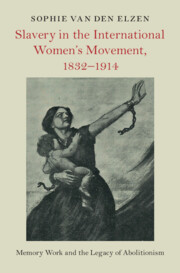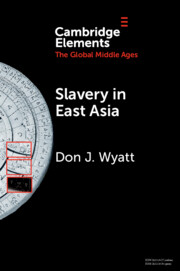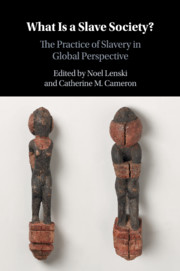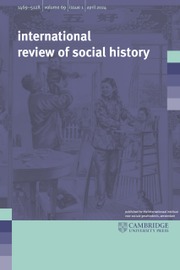Slavery in the International Women's Movement, 1832–1914
In this book, Sophie van den Elzen shows how advocates for women's rights, in the absence of their 'own' history, used the antislavery movement as a historical reference point and model. Through a detailed analysis of a wide range of sources produced over the span of almost a century, including novels, journals, speeches, pamphlets, and posters, van den Elzen reveals how the women's movement gradually diverged from a position of solidarity with the enslaved into one of opposition, based on hierarchical assumptions about class and race. This inclusive cultural survey provides a new understanding of the ways in which the cultural memory of Anglo-American antislavery was imported and adapted across Europe and the Atlantic world, and it breaks new ground in studying the “woman-slave analogy” from a longitudinal and transnational comparative perspective. This title is also available as open access on Cambridge Core.
- Sheds light on how the cultural memory of feminism and antislavery are still felt today
- Offers a sweeping account of how both movements developed together over decades
- Introduces English-speaking readers to trends that cross borders between English, French, German, and Dutch cultures, with translated examples from well-known and more obscure texts and other media
- This title is also available as open access on Cambridge Core
Reviews & endorsements
'Sophie van den Elzen has given us a fascinating study of how abolitionism provided a model for early feminism. Drawing creatively on a wide range of sources in several languages, she shows how women activists in nineteenth-century Europe looked to the enslaved, but above all to abolitionists in staking out their own claims to liberation. Theoretically refined and grounded in detail, this is a tour de force. Highly recommended for everyone interested in the history of feminism or the role of cultural memory in emancipation movements.' Ann Rigney, Utrecht University
Product details
No date availableHardback
9781009411967
304 pages
229 × 152 mm
Table of Contents
- List of Figures
- Acknowledgements
- List of abbreviations
- Introduction
- 1. From Transnational Movement to Global Memory: Abolitionism and the Culture of Reform
- 2. Fictions, 1832–1852: Sentimental Antislavery and the Sisterhood
- 3. Archives, c. 1848: Parisian Calls for 'Universal Emancipation'
- 4. Periodicals, 1866–1914: Slavery and the Woman Question
- 5. Histories, 1881–1914: Feminist Internationalists and the Antislavery Origin Myth
- Concluding Remarks
- Bibliography
- Index.










